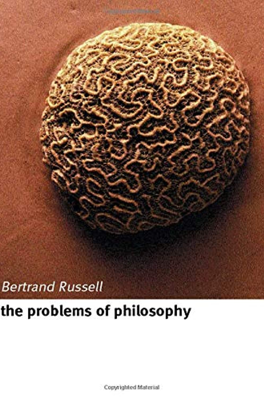On Our Knowledge of Universals
Knowledge of Universals by Acquaintance and Description
Bertrand Russell discusses how we obtain knowledge about universals, distinguishing between those known by acquaintance or description and those unknown by either method. He first addresses "sensible qualities," such as white, red, or sour, which we become acquainted with through direct sensory experiences, like seeing multiple white objects and abstracting their common whiteness. This process is simpler and seems less abstract compared with other universals.
Understanding Relations through Sense Data
Russell further explores how we apprehend relationships and relations, like spatial or temporal positions, by citing examples from sense data. For instance, observing the parts of a page relative to each other (left, right, above, below) helps in abstracting spatial relationships. Similarly, hearing a sequence of bells aids in grasaning the temporal relations of before and after. Similarly, experiencing resemblance between colors directly helps in understanding the universal quality of resemblance.
Apprehending Complex Relations Among Universals
He extends his analysis to more complex relations, such as the comparative resemblance between objects of different colors, illustrating how we can attain knowledge of a relation (like "greater than") between two other relations. He claims that this type of knowledge, although requiring more abstraction, is just as immediate and certain as sensory acquaintance with simpler data.
Revisiting A Priori Knowledge
Russell circles back to the topic of a priori knowledge, using the newfound understanding of universals to address previous complexities. For example, he re-examines the a priori statement "two and two are four," illustrating that it expresses a relation between universals, not particulars. This observation leads him to assert that all a priori knowledge concerns the relations between universals, not direct experiences with particulars.
Nature of A Priori Propositions and Their Applications
Even though a priori propositions imply knowledge about particulars (e.g., specific groups of objects adding to four), Russell clarifies that these general statements don't necessarily assert existence of these particulars but merely outline potential relationships among universals. Understanding such propositions doesn't require knowing every instance within the category, proving that our grasp of a priori truths focuses on universals, not particulars.
Differentiation from Empirical Generalizations
Russell contrasts a priori knowledge with empirical generalizations, such as "all men are mortals," highlighting that the persuasive power of a priori statements lies in perceived relationships between universals, which are not derived from instance-based inductive reasoning. This inherent difference characterizes our understanding of a priori knowledge as fundamentally non-empirical.
Philosophical Implications of A Priori Knowledge Without Instances
He intriguingly discusses how we can have valid a priori knowledge of general propositions without knowing any specific instances, exemplifying with theoretical mathematical products or concepts that are too large to be observed or considered in human experience, but whose relationships we can understand universally.
Concluding Reflections on the Sources and Types of Knowledge
Concluding the chapter, Russell reflects on the structure of knowledge as derived from both things and truths and distinguishes between knowledge by acquaintance (direct experience of particulars or universals) and knowledge by description (dependent on acquaintance but concerning things not directly experienced). He also introduces the challenge of error in knowledge, particularly in judgments about truths, which complicates philosophical understanding of knowledge compared to more straightforward acquaintance with direct data.
